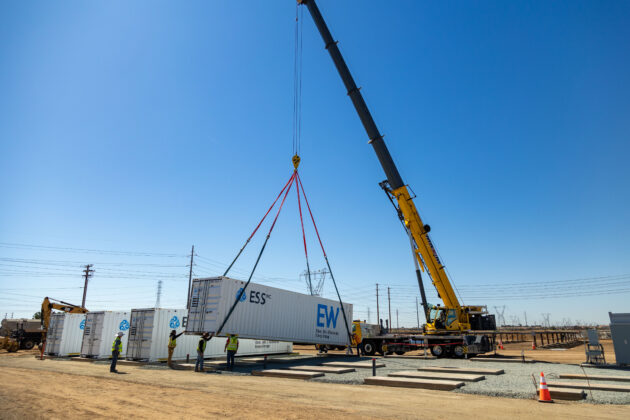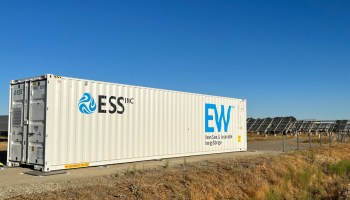
New partnership: Oregon battery manufacturer ESS Inc. has a deal with international conglomerate Honeywell that includes a $27.5 million investment with the possibility of an additional $20 million in capital in a second phase. Perhaps even more importantly, the partnership includes an agreement that Honeywell will become a buyer, seller and reseller of ESS technology, with an initial target of $300 million in sales.
“It’ll really help accelerate our growth into new markets, new geographies,” CEO Eric Dresselhuys told GeekWire. “We’re still a relatively small company with a relatively small team, so we get to tap into that giant global go-to-market army.”
ESS is additionally acquiring an exclusive license to use Honeywell’s flow battery intellectual property, adding it to ESS’ existing IP portfolio.
The biz: ESS is a long-duration energy storage company founded 12 years ago and based in Wilsonville, Ore. It previously raised $350 million from venture capital investments and through an IPO two years ago. It has support from noteworthy backers including Bill Gates’ Breakthrough Energy Ventures, SoftBank Group and BlackRock.
Last year the company missed some of its production targets, but Dresselhuys said hiring has stabilized and the situation has improved. The business has roughly 250 employees.
“We’ve got capacity now for about 800 megawatt-hours (MWh) a year of production, and we are working on our plans to grow out from there,” he said.
The company’s stock is trading at around $2 per share, well below its initial price of more than $17.
The tech: ESS is building iron flow batteries, which have a number of advantages over lithium batteries, including being longer duration, eliminating fire risks associated with lithium batteries, and not requiring rare earth minerals in their manufacturing.
Batteries online in U.S.: ESS this month flipped the switch on 3 MWh of batteries installed with the Sacramento Municipal Utility District. The commission was the first step in an agreement to ultimately deploy 200 megawatts of storage capacity that will generate 2 gigawatt-hours (GWh) of power.
Batteries abroad: In August, ESI, the Asia-Pacific license holder of ESS’ technology, delivered 1 MW of batteries to Queensland, Australia.
ESS in June signed a deal with the German energy company LEAG to build a 50 MW energy storage system on the site of a LEAG coal plant, which is being decomissioned.
The approximate target for deploying the batteries is in 2026. The site in eastern Germary, which will incorporate solar and hydrogen power systems, is ultimately aiming for 2-3 gigawatts of battery capacity.
ESS also has an agreement to provide energy storage for an airport in Amsterdam.
The company was recognized in September by the U.S. Department of Commerce for its success in exporting its technology abroad.



